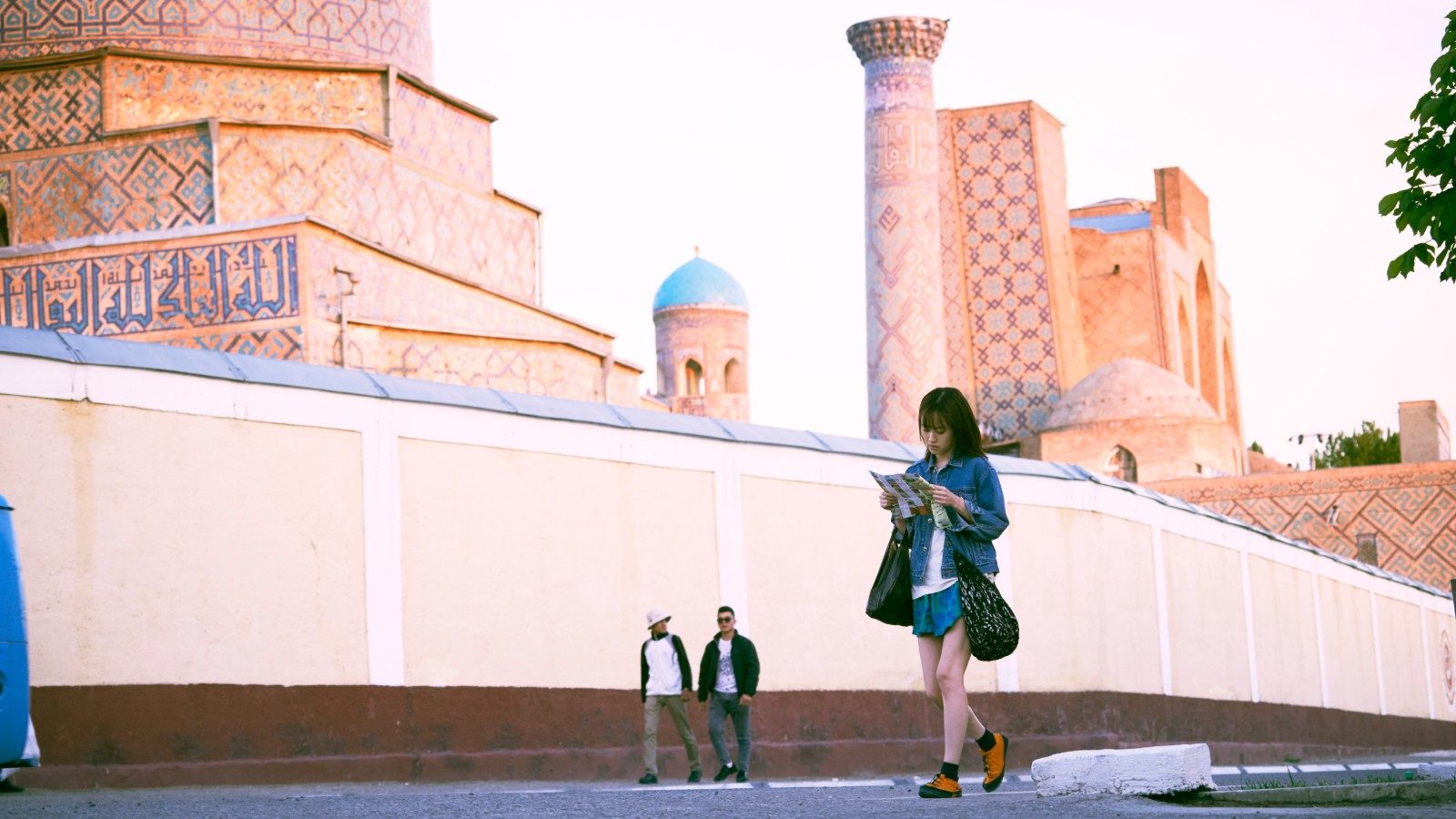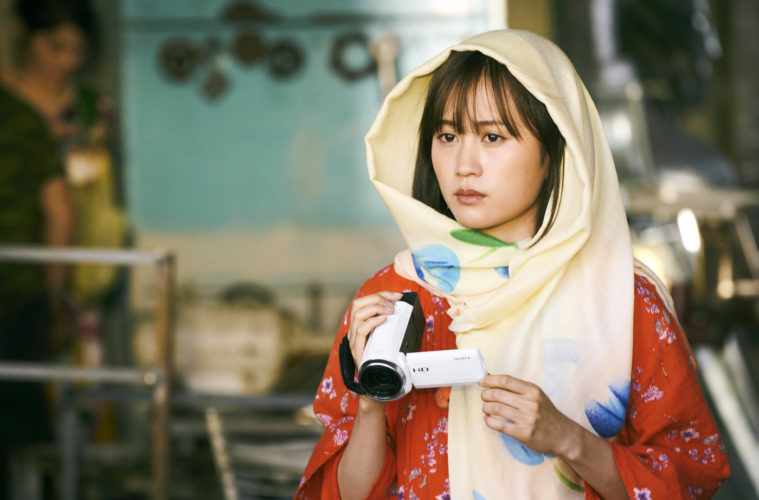TV reporter Yoko sits with a member of her crew in the breakfast room of Tashkent’s Uzbekistan Hotel. She’s miles away from her native Tokyo turf, on an assignment that shipped her all the way to the central Asian republic, ostensibly to film a “bramul,” a gigantic fish said to reach up to two meters in length. Except the fish is a most elusive creature (“does it even exist?” the crew’s director ponders after a few days spent hunting for the beast, to no avail), and the trip is turning into a disaster of epic proportions. The look on Yoko’s face has little to do with the failed quest though; her eyes are going grim, her face sending out less light. She tells the cameraman she fears her job is steering her away from what she truly wants to do: sing. The man consoles her (“singing and reporting to an audience aren’t much different”), but she won’t have it. “I feel different. Singing needs emotion, from the bottom of your heart,” she mutters, teary-eyed. “And I don’t even know what I’m supposed to feel.”
Should there be a line that singlehandedly encapsulates all the sense of loss and alienation shimmering throughout Kiyoshi Kurosawa’s To The Ends of the Earth, this one would be a worthy candidate. Six years after his 2013 Seventh Code, Kurosawa leaves his familiar Tokyo grounds to embark on his second feature outside Japan, again with singer-cum-actress Atsuko Maeda as lead, only this time the setting isn’t Vladivostok, Russia, but the sprawling prairies of Uzbekistan, and the film doesn’t unfurl as a thriller, but a resolutely low-key, unassuming charmer, an intimate portrait of someone thrown into a foreign land and struggling to find her bearings back.

It’s a frustrated quest for belonging, though not one between Yoko and the country she’s shipped to–at least not tout court. Sure, much of the young woman’s alienation accrues from the several lost-in-translation encounters with Uzbek folks she stumbles into throughout the journey, but the feeling seems to cut deeper. Watching Maeda meander across the streets and steppes of Uzbekistan, you get a sense that she could be just as lost in her own backyard–as if the trip to a foreign land only laid bare an old ill, something that’s long chugged away inside her, and now resurfaces with full and inescapable strength.
So what exactly happens during Yoko’s journey? Admittedly, very little. Her team includes cameraman Iwao (Ryo Kase), over-zealous assistant Sasaki (Tokio Emoto), director Yoshioka (Shota Sometani), eager to dismiss any unorthodox suggestion as “bad TV,” and Temur (Adiz Radjabov), an Uzbek factotum in awe with all things Japanese whom the crew recruits as fixer, translator, and driver. Yoko first graces the screen in medias res: she’s late for a shooting at lake Aydar, where Yoshioka hopes to catch some bramul on film, but the fish won’t show up–the first in a long series of frustrated efforts that will later include Yoko trying some undercooked local recipes, riding a derelict luna park attraction, setting a goat free, and getting lost multiple times in between each shooting. A far cry from a traditional, three-act plot, To the Ends of the Earth unfolds as an episodic tale, a series of vignettes, of diary entries of Beckettian aura. Plans are made, and inevitably, they fail, leaving the crew waiting for things to happen and for invisible creatures to manifest themselves–gracing Kurosawa’s portrait of the traveling quintet with a subtle irony.

This is not to suggest that Yoko’s journey is in any way uneventful, only that the conflict the heroine faces is an intimate, private matter, a strife that plays out through searching glances and evasive answers more than plot-twists or jump scares. Save for the woman’s propensity to get lost and into trouble, unlike previous entries in Kurosawa’s canon, there are no real hints that the plot could veer into thriller or horror terrain. Even after Yoko is caught filming in an off-limits part of town–a crime she unknowingly commits–the confrontation with the local authorities morphs into an endearing, near-parental pep talk. “If we don’t talk to each other we can’t get to know each other,” a police chief warns her in broken English, fortunately only one of a few other instances in which Kurosawa’s script threatens to slip into some moral parable of sorts.
Still, this is very much Maeda’s picture–and that the film strikes as a gentle, self-effacing and melancholic ride is largely her merit. Kurosawa, who spoke to The Film Stage ahead of the film’s premiere in Locarno, said part of the reasons he feels so attracted to the singer-turned-actress is her ability to own the frame, “to exist by herself.” As much as Akiko Ashizawa’s widescreen lensing does justice to the belittling beauty of Uzbekistan’s interior, To the Ends of the Earth is unmistakably enamored with its lead, and it is when it closes in on Maeda’s vulnerable face that her loneliness bursts most vividly. All Yoko wants is to sing, but to do so she must be attuned to her feelings; this is not so much a tale of an artistic awakening, but an emotional education.
To the Ends of the Earth premiered at Locarno Film Festival and screens at TIFF and NYFF.

